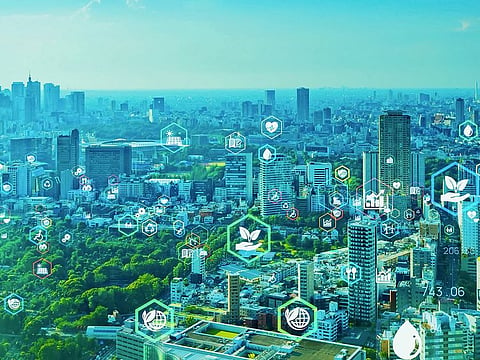Building company-wide sustainability programs? Do it one employee at a time
Going green must onboard entire workforce – even one employee at a time

Sustainability is resonating as a shared responsibility that extends to every department and individual within organizations. When each employee wholeheartedly embraces their environmental responsibility—genuinely believing in its profound impact—and weaves it into their daily operations, only then can businesses amplify their overall impact.
In this pursuit, leaders assume a pivotal role, cultivating a culture of sustainable habits and practices one employee at a time—if that's what it takes. This hinges on the authenticity of each employee’s belief in sustainability, as a collective commitment forms the bedrock of meaningful change.
Optimizing supply chains
The operations department wields significant influence on sustainability efforts. Ensuring ethical sourcing, streamlining supply chains, reducing transportation emissions, and implementing efficient processes can have a significant impact on the environmental footprint of any company.
We have established our own green procurement standards, which score suppliers on their environmental approach at a business and materials level. Suppliers must adhere to these standards in order to work with us.
Marketing campaigns
Marketing departments hold the power to influence consumer behavior. Campaigns promoting more sustainable products or initiatives drive positive change.
Authenticity in sustainability efforts extends beyond marketing. Transparently reporting on sustainability efforts builds trust. Big or small, virtually any company can be part of the UN Global Compact, which helps align activities with targets such as climate action and form an important part of measuring the social value of organizations.
Sustainability reporting is paramount as it provides rigorous details on how businesses are performing against climate targets.
Sustainability through budget allocation
Finance departments stand at the forefront of driving sustainable transformation within organizations. Their pivotal role extends beyond fiscal management, encompassing strategic investments that champion environmental stewardship.
By directing resources towards renewable energy sources and innovative green technologies, finance departments become architects of change, paving the way for a more sustainable future. Each monetary decision can be a catalyst for change, aligning financial prudence with an environmentally conscious ethos, ultimately fostering a resilient and more sustainable business model.
Product development
Embedding sustainability within products or services stands as a cornerstone for any organization committed to a more sustainable future.
For example, our office multifunction devices and laser printers use energy-saving technologies, including on-demand fixing technology and induction heating fixing technology to reduce the amount of electricity needed during operation. We also employ low-melt-point toner in new products, enabling fixing at lower temperatures than traditional toner.
Green tech choices
In the realm of IT, making more environmentally conscious choices in hardware and software solutions can make significant strides toward sustainability. For instance, the selection of energy-efficient technologies and data management systems holds immense potential for reducing overall energy consumption.
Employee engagement
HR departments are capable of spearheading a profound cultural shift by engaging employees in multifaceted sustainability initiatives. Offering environmental workshops, advocating for volunteer programs, and weaving sustainability into the fabric of company culture galvanize employees toward meaningful action.
An inclusive approach to sustainability not only values but actively seeks diverse perspectives, recognizing that a spectrum of insights fuels innovation and sustainable practices. This inclusive ethos ensures that every voice is heard, and every idea considered, fostering a sense of ownership and unity in creating a more sustainable future.
Interdepartmental collaboration
There is no doubt that collaboration among departments amplifies sustainability efforts. At the end of the day, departments learn and grow by exchanging successful sustainability practices.
Leadership plays a pivotal role in setting the tone for sustainability. Clearly defining and championing sustainability goals motivates teams. For us, everything we do as a brand follows our corporate philosophy of ‘Kyosei’—to live and work in a harmonious way for the common good.
Sustainability is a collective responsibility and every department holds a piece of the puzzle. It’s imperative to leverage this combined strength, align efforts, and intensify commitments toward a more sustainable future. Leaders must foster an environment where sustainability isn’t an afterthought but ingrained in every action.
My hope is for all companies and their stakeholders to pledge genuine, concerted efforts, setting new benchmarks for corporate sustainability and inspiring global change.




